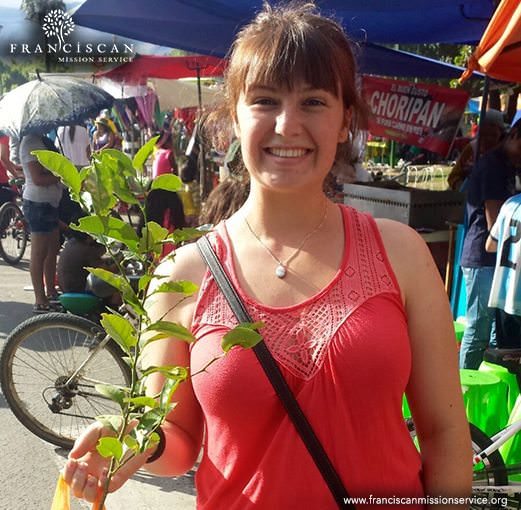Little Bits of Solidarity

Editor’s Note: Missioner Allison Dethlefs reflects on the notion of solidarity and what it looks like now that she’s on mission in Bolivia.
Solidarity is a big, somewhat ambiguous word that we throw around a lot nowadays. We often talked during formation about how we were going on mission to live and work in solidarity with the most marginalized populations in our new cities or towns. It sounded big, important, admirable, and a bit idealistic.
But the truth is, that during the four months I’ve spent in Cochabamba, “living in solidarity” has not been any of those things. I’m slowly coming to realize that solidarity is more often composed of a myriad of little things, choices, and pieces of a new reality rather than of big sweeping actions or statements.
No matter how long I live here, I will never be Bolivian. I cannot pretend that I will ever fully know or experience the reality that many Bolivians face, nor can I pretend that I will ever cease to be a white foreigner with innumerable unearned privileges. But just because I cannot entirely share the reality of the people I’m here to serve does not mean that I cannot live in solidarity with them.
Living in solidarity is all about diving headfirst into this adventure. I am living in solidarity because I walk the same Bolivian streets and breathe the same air. Solidarity means that I have to boil all of my water and travel everywhere on foot or on rickety buses. It means I eat the cinnamon and milk flavored ice cream, participate in cultural festivals, and drink coca tea with the best of them.
We cook our food. For every meal. Every day. Sometimes it takes hours from the start to the last hand-washed dish. We wash our laundry. By hand. It consumes entire afternoons. We can’t afford fun vacations or big trips. We rarely go out to eat.
We’ve spent months building relationships with our weekly grocery vendors: Juana who sells us our vegetables, Viviana our fruit lady, Rosario who we go to for flour, pasta, and canned goods, and those who sell us eggs, meat, and milk. They’re all bits of solidarity.
Solidarity means that I got my phone stolen in the busy animal market, an experience all too common for Bolivians. It means that Catherine and I sit down, sometimes multiple times a week, to talk about our budget and what we can and can’t afford to buy this month.
Solidarity is sitting down with one of the Quechua women who sells flowers and in my mangled Quechua trying to share my story and understand hers. It is even standing, uncomfortably, on the side of the unemployed as I wait to find my main ministry site, unsure of how I fit in.
I may have no grand gestures to offer, but I am capable of doing the little things, and more than that, I am capable of widening my perspective to see how important those little pieces of solidarity are.
So, I will drink the water, wear the dust on my feet, peel the fruits, share the stories, and live this life in solidarity with all the Bolivians who do the same.
Reflection Question: What does solidarity mean to you?
Tagged in:


